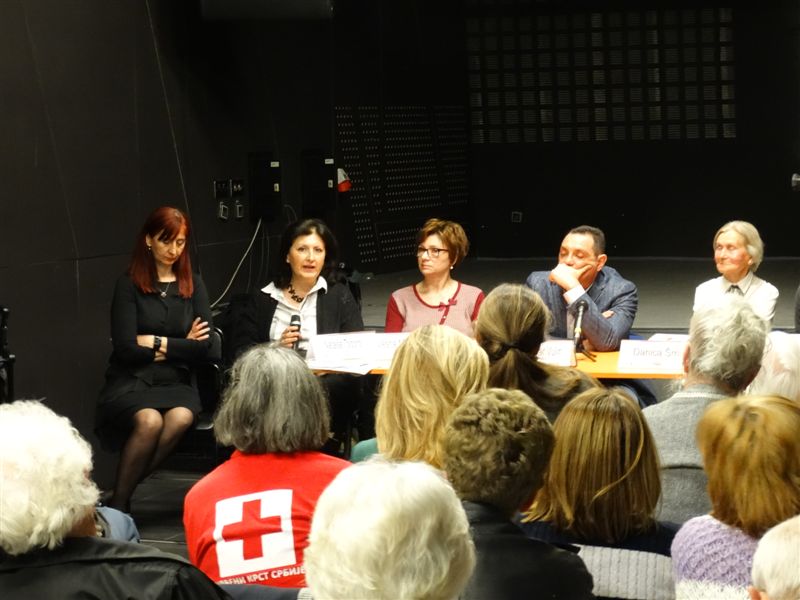Intergenerational debate at the Spring Health Festival in Belgrade
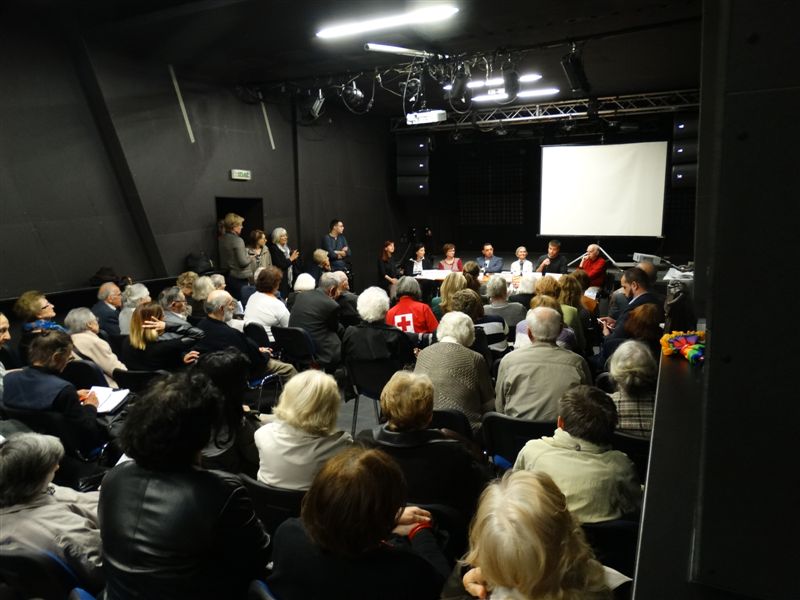
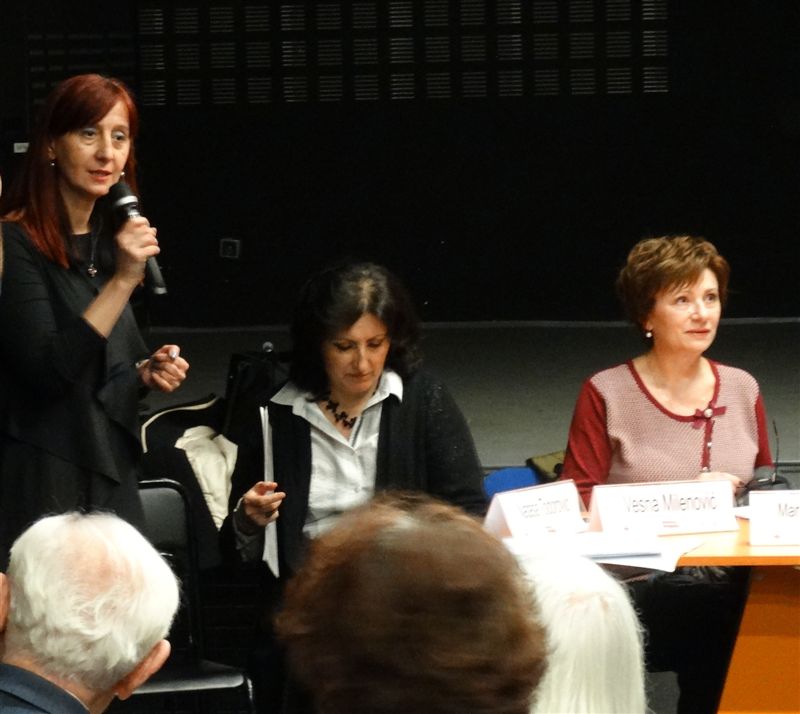
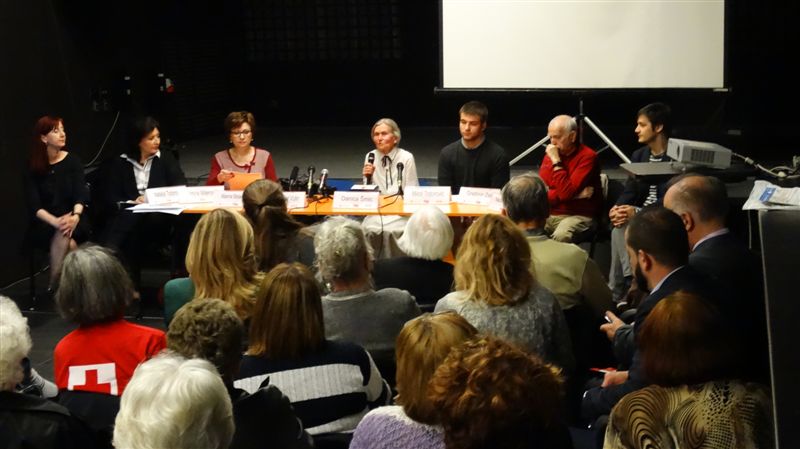
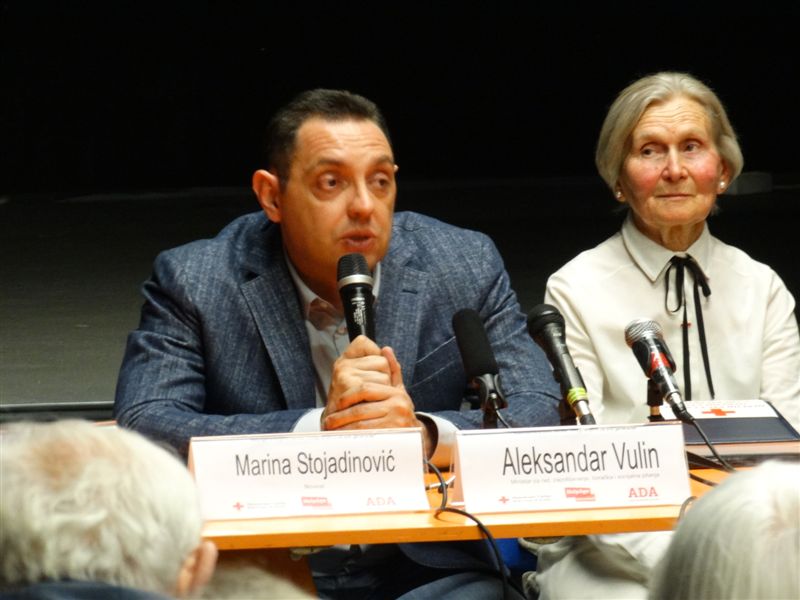
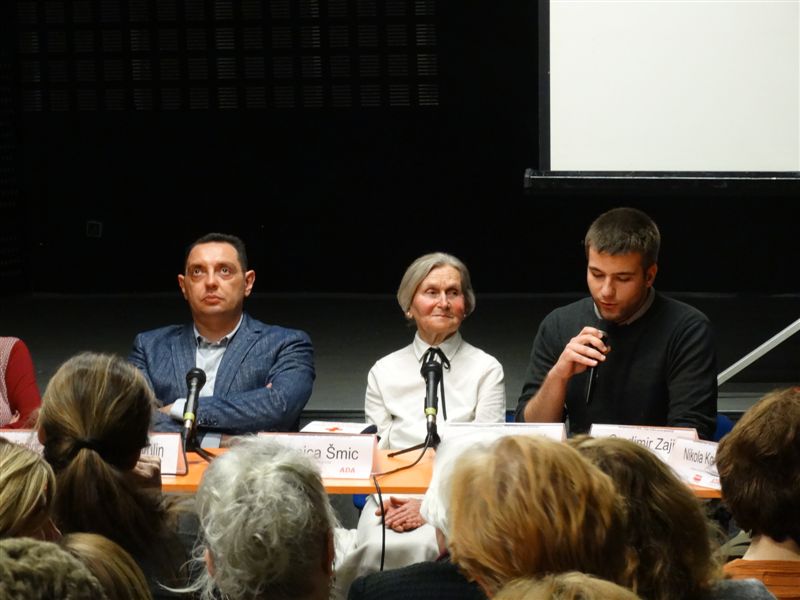
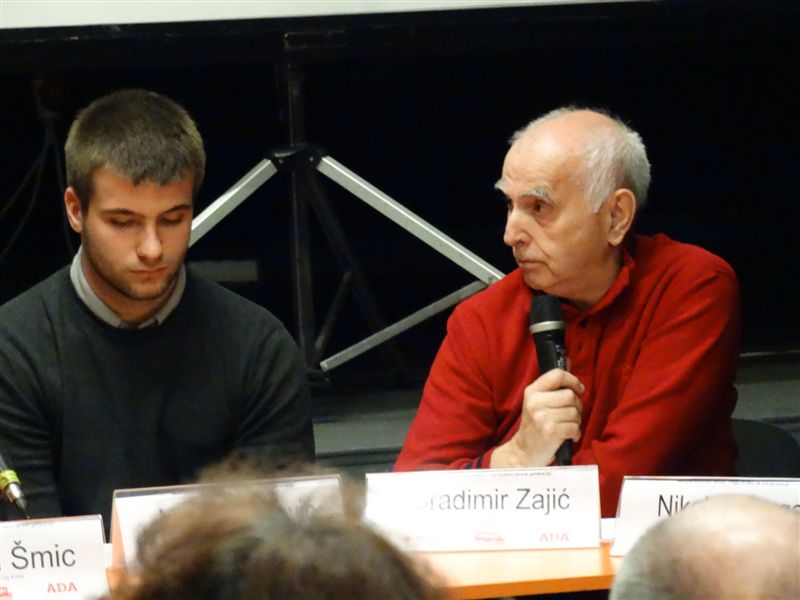
On 5 April the Red Cross of Serbia organised an intergenerational debate in the Belgrade Youth Centre, as part of the Spring Health Festival programme. The topic for the debate, entitled “Serbia, a society for all generations” was selected due to the fact that the Government of Serbia had announced that 2017 is the year of Intergenerational Solidarity.
The participants of the debate were: Aleksandar Vulin, Serbian Minister of Labour, Employment, Veteran and Social Issues, Vesna Milenović, Secretary General of the Red Cross of Serbia, Danica Šmic, an older volunteer of the Red Cross of Serbia, Gradimir Zajić, a retired sociologist, Marina Stojadinović, a journalist working for the National Broadcasting Corporation, Nikola Koruga, Andragogy PhD student at the Belgrade University, Miloš Todorović, Antropology student at the Belgrade University. The debate was facilitated by Nataša Todorović, a psychologist working in the Red Cross of Serbia.
All of the participants agreed that development of a society is very much depending on developing understanding, tolerance and solidarity between generations. Minister Vulin emphasised the importance of combating discrimination and abuse and taking good care of all generations. He underlined that every generation has its place in the society and provides priceless contributions to its development.Danica Šmic, the Red Cross of Serbia volunteer talked about cooperation between older and younger volnteers in emergency response as well as theit shared enthusiasm to assist people in need. Marina Stojadinović, a journalist working at Radio Belgrade talked about her professional experience and how rewrding it is to be able to work with older people and for older people, but she also talked about her private experiences of providing remote care for her older parents and the frustration of not being able to see them more frequently due to professional and other family commitments. Gradimir Zajić, a retired sociologist pointed out that solidarity is essential but that one should be mindful and understand that there is a line between providing support and providing charity that should not be crossed. In his opinion it is important for older people to maintain contacts with their pre-retirement profession through intergenerational solidarity. Nikola Koruga, Andragogy PhD student discussed learning communities supported by UNESCO and talked about Belgrade being a learning community supporting lifelong learning, during the project’s duration. Miloš Todorović, Anthropology student focused on cultural issues: how do we go about raising awareness in the society? How do we bridge the generation gap, combat discrimination? Vesna Milenović, the Red Cross of Serbia Secretary General pointed out several important facts:
- The society will have to become more efficient in using the potential of all generations which means ensuring they all reach their full potential. In order for this to happen, socieal policies need to be updated and modernised.
- The perception of persons over the age of 50, 60 or 70 needs to be changed. Ageing is still viewed as a problem because the society fails to see the xisting potential in older people. She emphasised that the baby boomr generation members are still largely healthy and active as well as better educated and trained than their predecessors. Societies need to ensure their great potential is used, not lost.
- As the society ages, investments in younger generations become even more crucial because successes of younger members of the society ensure that the society can support those older people in need of support. Therefore the issues such as high unemployment of younger people, their premature dropping our of the education system and job insecurity need to be resolved as quickly as possible.
The middle, “sandwich” generation must not be forgotten. Its members provide care and support to both younger and older generations and the burden of this work usually falls on female members.
